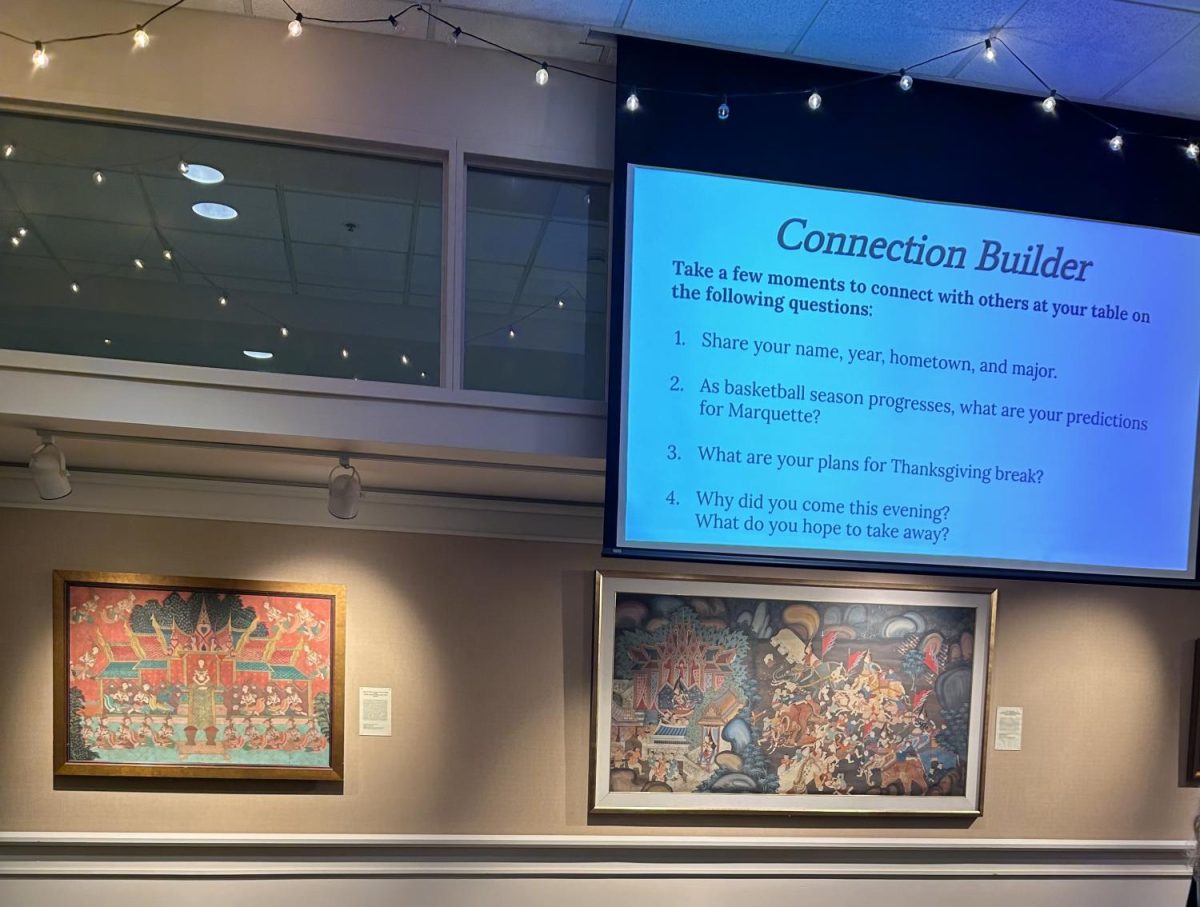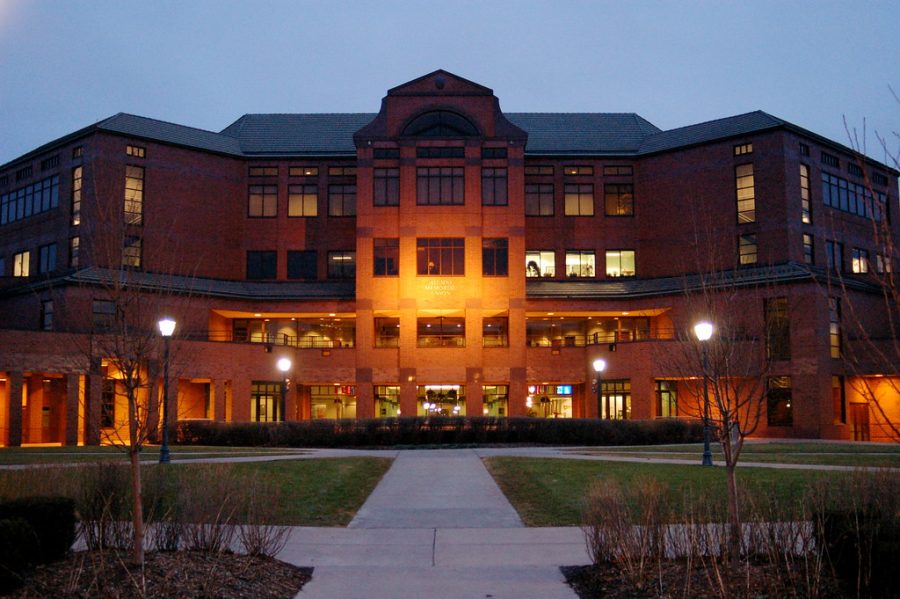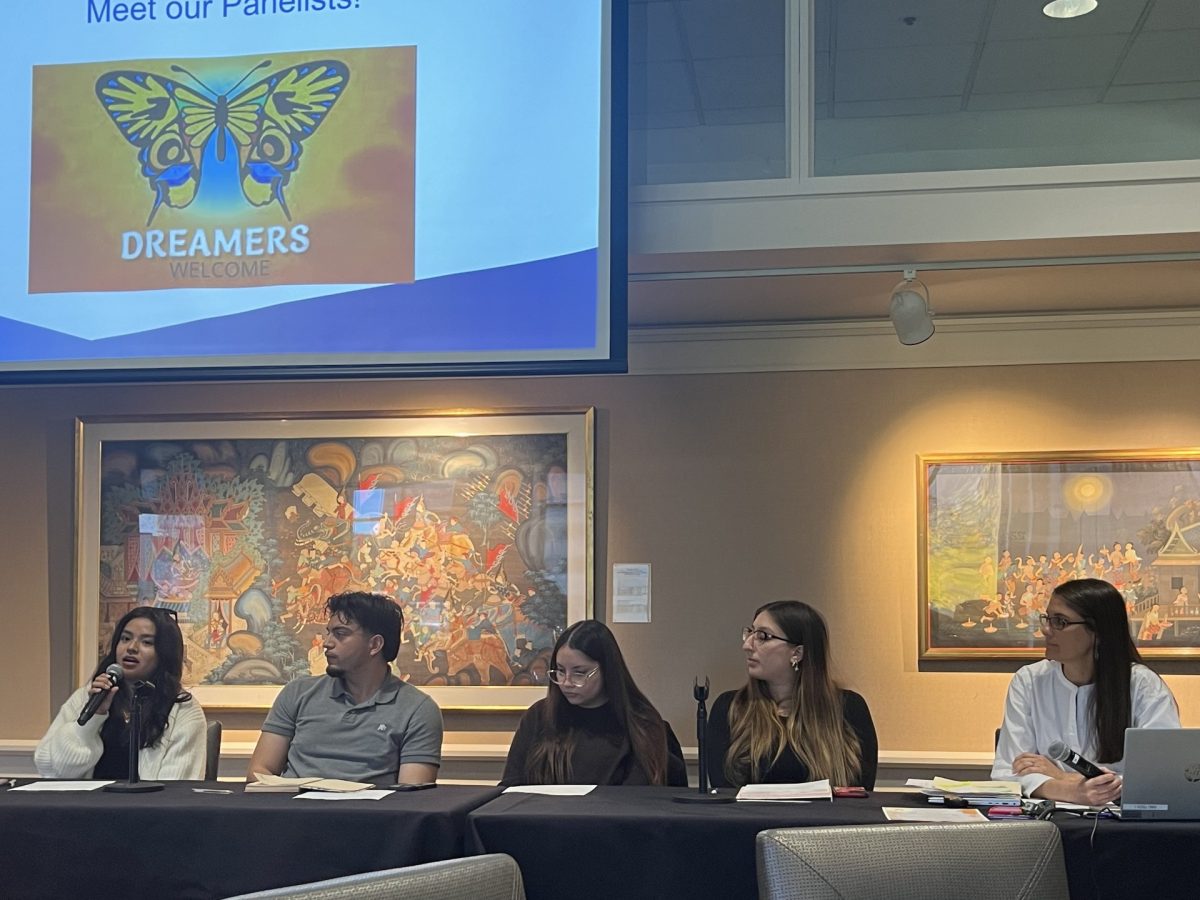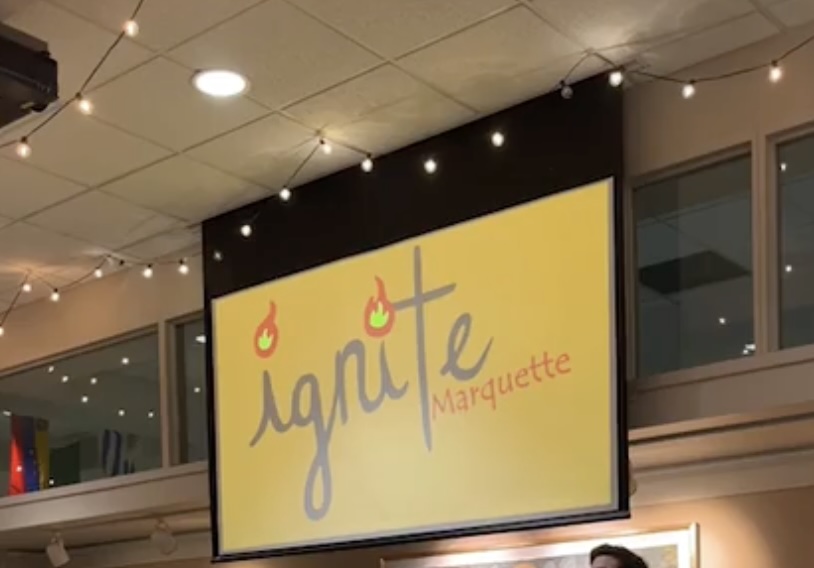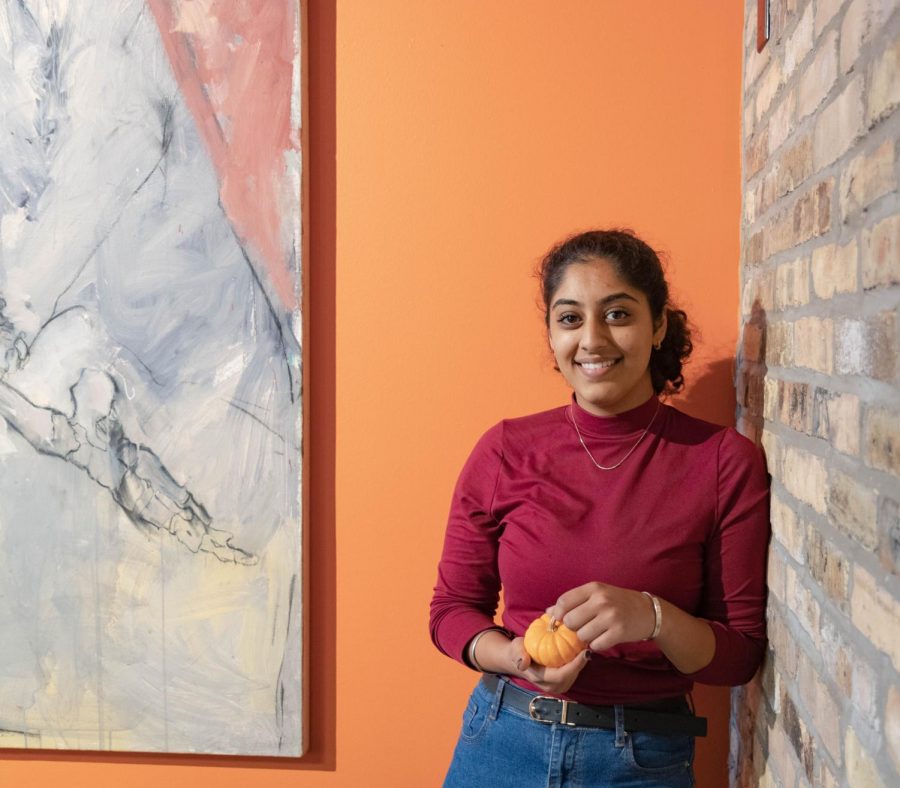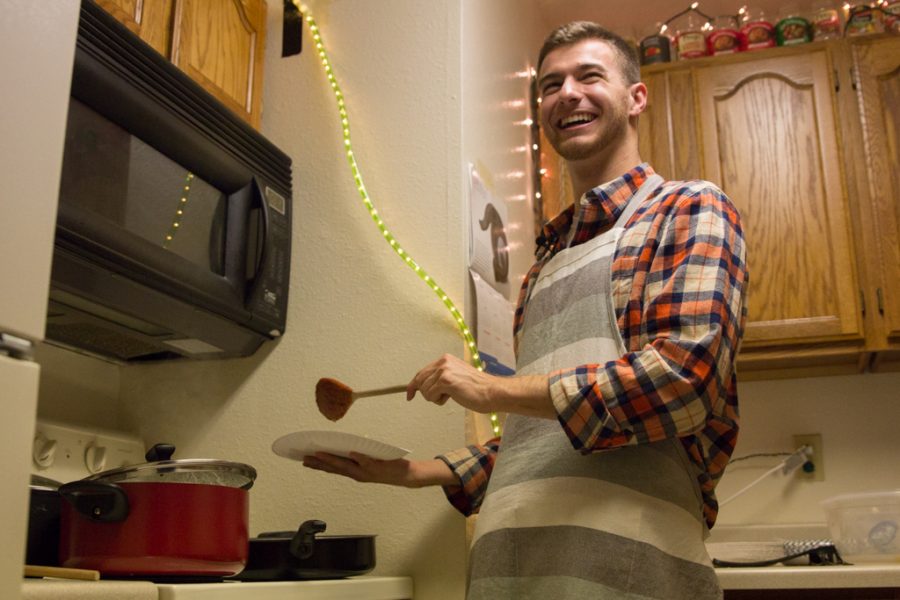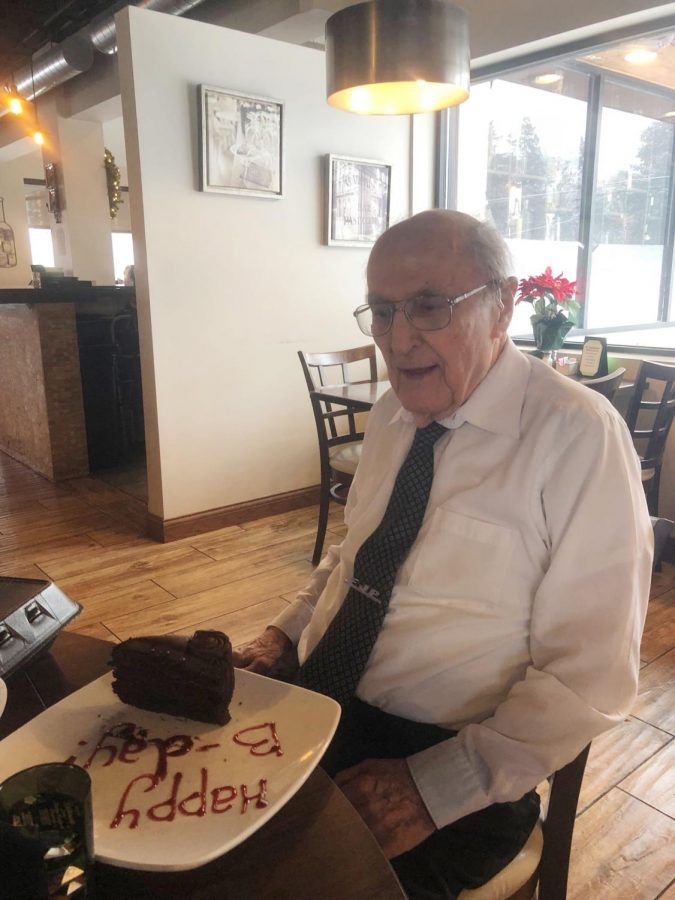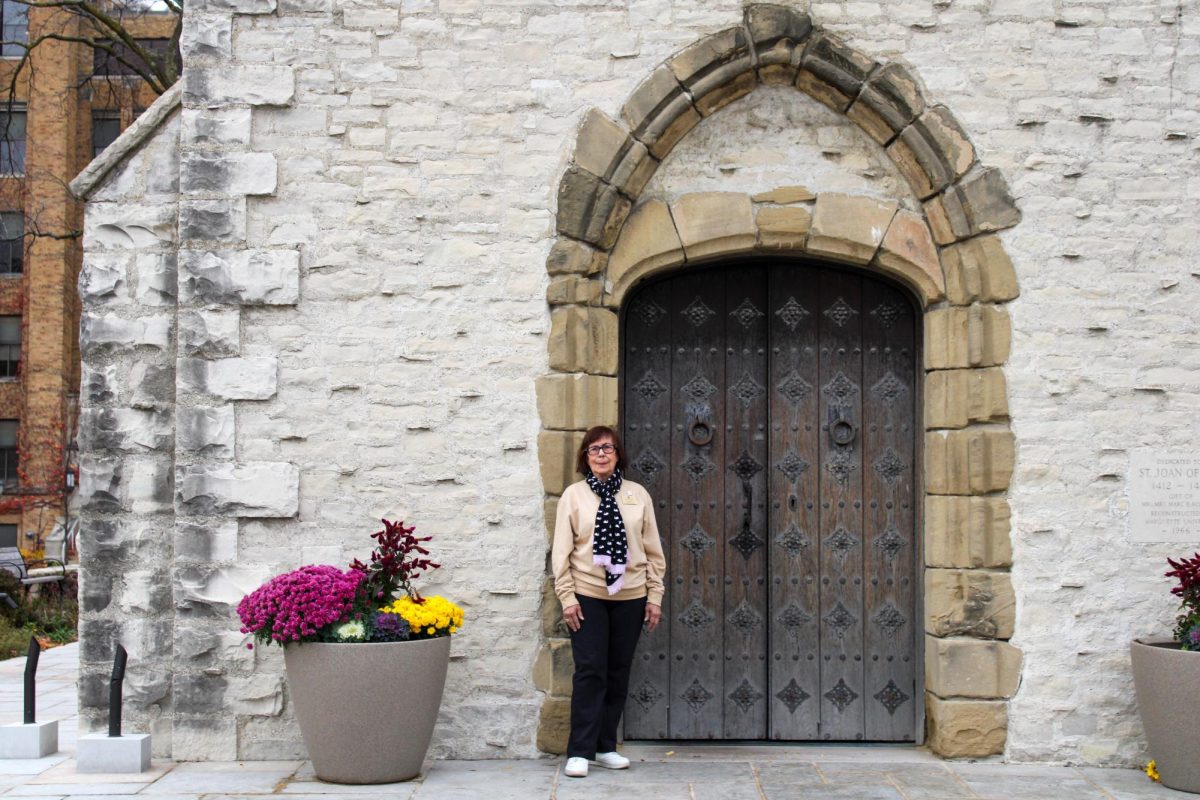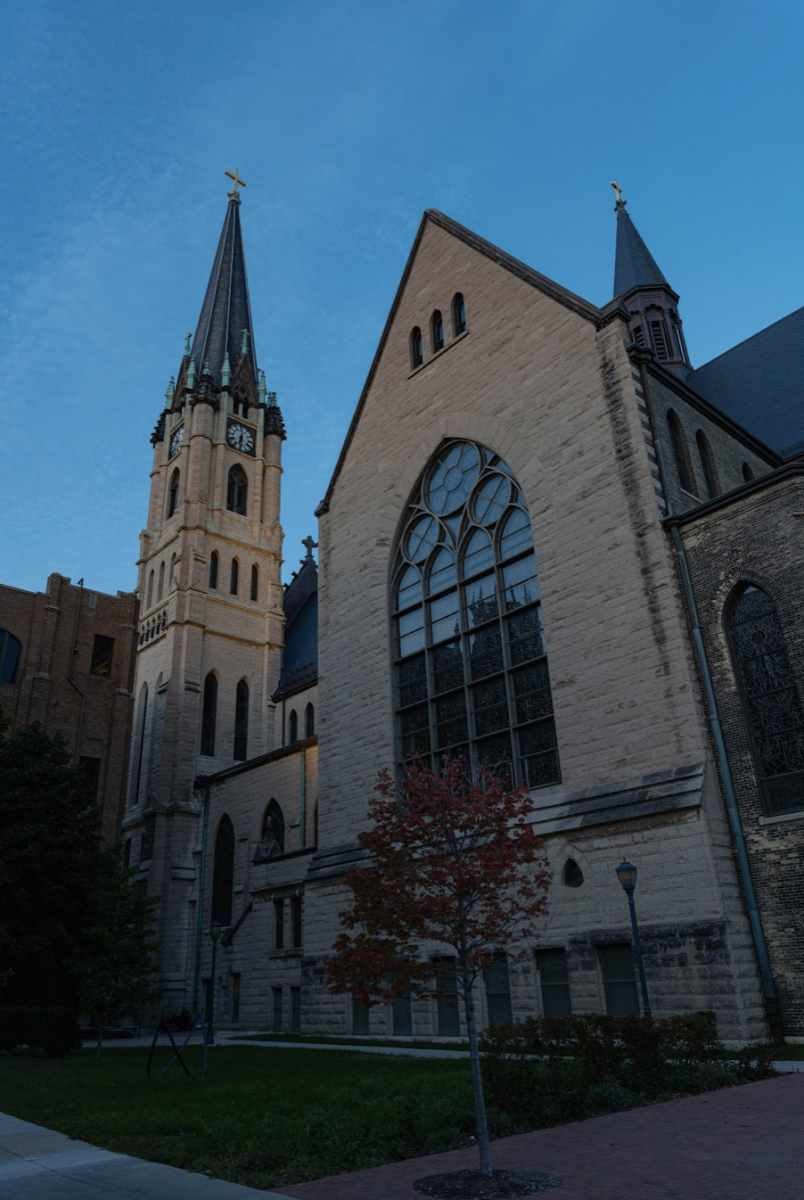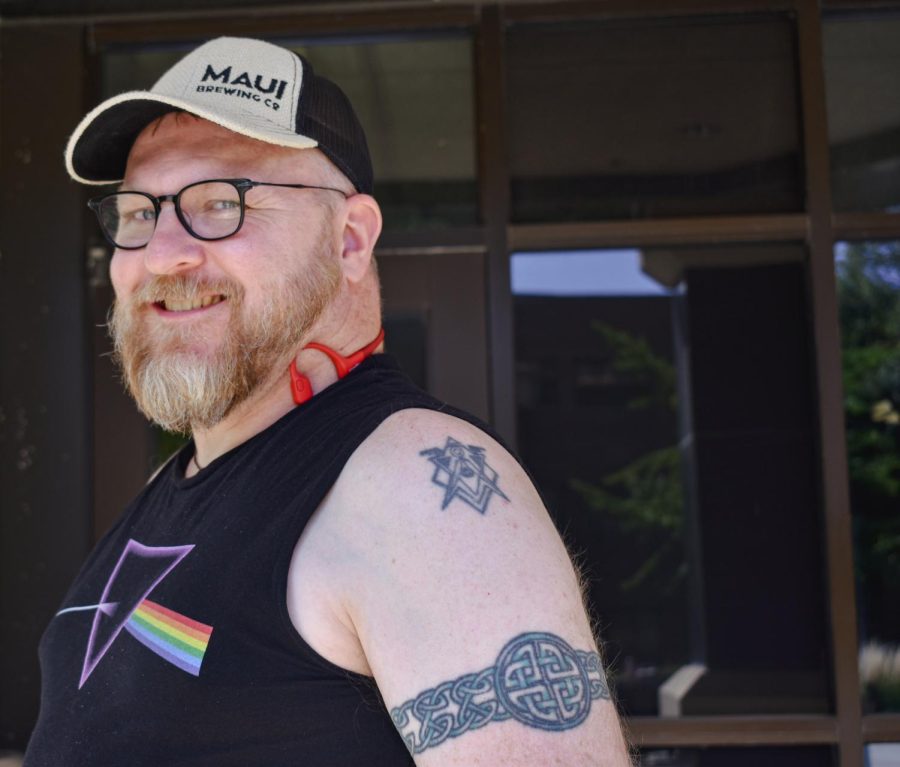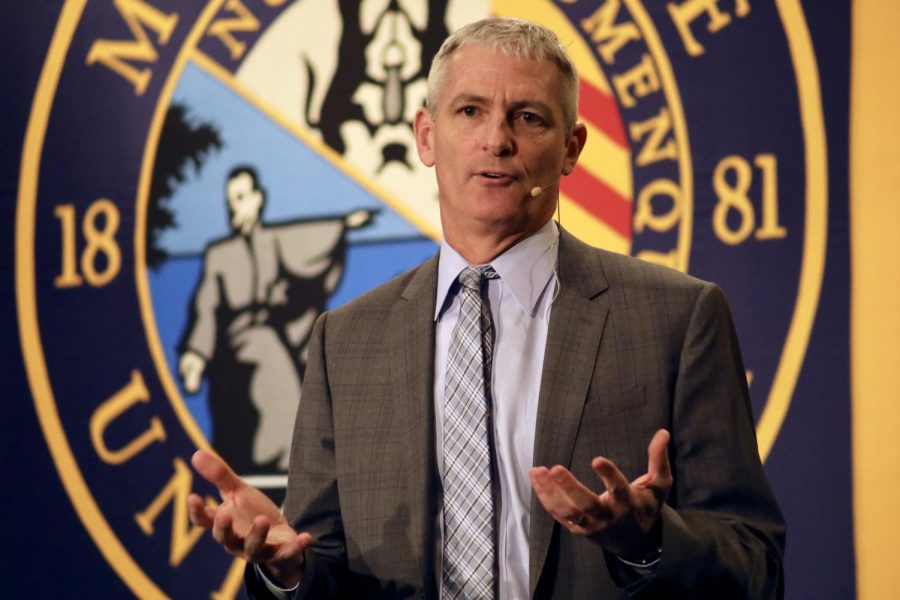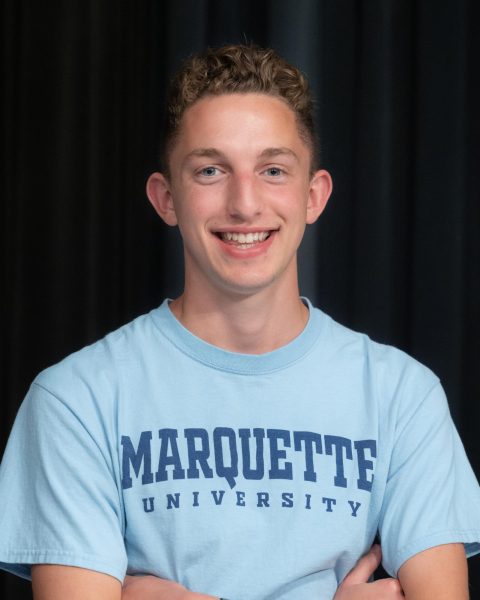Students across various religious affiliations united Monday evening in the Alumni Memorial Union Lunda Room to share a meal and how faith and empathy interact in their lives.
The dinner was hosted by the Interfaith Conference of Greater Milwaukee in partnership with Campus Ministry. Additionally, the Center for Peacemaking, Cru, Hillel Milwaukee, Jewish Student Union, Muslim Student Association and the Orthodox Christian Fellowship co-sponsored the event.
“The goal is to really engage with one another in conversation, to foster new relationships and greater understanding of each other,” Steve Blaha, interim director of Campus Ministry, said. “It helps us craft a future filled with hope, and we do that here, together.”
Attendees sat at tables with fellow students and a trained facilitator who led conversations during the meal. The meal was a free vegetarian Mediterranean dinner including salad, artichoke stuffed pasta shells, potato wedges and other refreshments.
The meal was crafted to be vegetarian so as to not conflict with any religious dietary restrictions on meat.
Allison Hayden, assistant director of Hillel Milwaukee, shared a food analogy to describe how students of multiple faith backgrounds gathered.
Hayden said the conversation of faith was like different sauces on pasta. She said everyone has their own unique sauce, or tradition, but at the end of the day it goes on the pasta, or faith topic.
The table discussions flowed through one person answering a premade question on a card, followed by the next person answering another question and so on.
Ahmed Quereshi, executive director of the Interfaith Conference of Greater Milwaukee with 22 local faith organizations, said the questions were drafted by a professor at Rice University about 15-20 years ago, and a prior director brought that concept to Milwaukee.
“We want people to sit down and talk about things that matter,” Quereshi said. “This is about trying to build bridges between people of different faiths.”
Additionally, Quereshi said in each group discussion only one person talks or answers a question at a time. The only interruption allowed was if someone could not hear the other person.
“The questions are meant to engage storytelling about experiences and perspective. It’s not what you learned in Theology 1001, 2001, or a graduate level seminar class,” Quereshi said. “It is about sharing something from your background and gaining appreciation for others’ perspective.”
Quereshi said the Interfaith Conference of Greater Milwaukee is aiming to host an “amazing faith dinner” at least once a semester at all of the major college campuses and some smaller ones in Milwaukee.
The next “amazing faith dinner” at Marquette will take place during the spring semester.
This story was written by Gabriel Mannion. He can be reached at [email protected].


